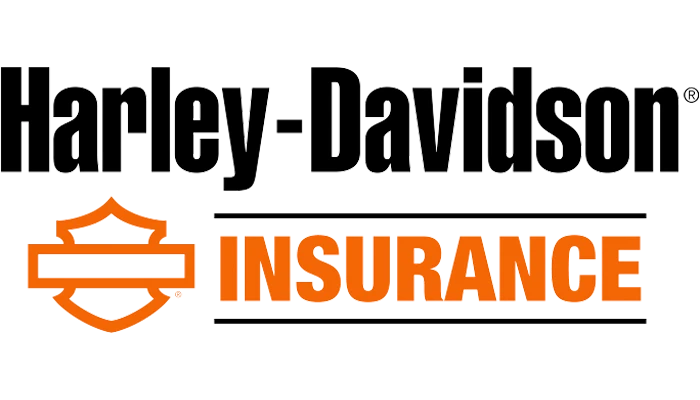Travel insurance is an essential component of any trip, providing peace of mind and financial protection against unforeseen circumstances. Whether you’re planning a weekend getaway or an extended international adventure, selecting the right travel insurance is crucial. In this article, we will explore the key factors to consider, research methods for insurance providers, evaluating policy terms, assessing customer support, and ultimately making an informed decision.
Understanding Travel Insurance
When it comes to travel insurance, understanding its purpose and the coverage it offers is essential. Travel insurance acts as a safety net, protecting you from financial losses due to trip cancellations, medical emergencies, lost luggage, and more. There are various types of travel insurance policies available, including single-trip, multi-trip, and comprehensive coverage plans. It’s important to understand the different coverage options and select the one that suits your travel needs.
Types of Travel Insurance
- Single-Trip Insurance: This type of insurance covers a specific trip and is suitable for occasional travelers.
- Multi-Trip Insurance: Ideal for frequent travelers, multi-trip insurance provides coverage for multiple trips within a specified time frame.
- Comprehensive Insurance: Offering the most extensive coverage, comprehensive insurance covers a wide range of travel-related risks.
Coverage Options
Travel insurance typically includes the following coverage options:
- Trip cancellation and interruption
- Emergency medical expenses
- Baggage loss or delay
- Emergency evacuation
- Accidental death and dismemberment
Factors to Consider
To choose the right travel insurance, consider the following factors:
Destination and Duration
The destination and duration of your trip play a significant role in selecting the appropriate coverage. Some regions may have higher medical costs or increased risk factors, requiring specialized coverage. Additionally, the length of your trip determines whether a single-trip or multi-trip insurance policy is more suitable.
Coverage Limits and Exclusions
Review the coverage limits and exclusions of different insurance policies carefully. Ensure that the coverage aligns with your specific requirements, such as medical expenses, trip cancellation fees, and personal belongings.
Medical Coverage
Evaluate the medical coverage provided by different insurance policies. Look for policies that offer sufficient coverage for emergency medical expenses, hospitalization, and repatriation.
Trip Cancellation and Interruption
Consider the coverage provided for trip cancellations and interruptions. Ensure that the policy covers unexpected events such as illness, natural disasters, or other circumstances that may force you to cancel or interrupt your trip.
Researching Insurance Providers
Researching and comparing insurance providers is a crucial step in choosing the right travel insurance. Consider the following aspects during your evaluation:
Comparing Quotes
Obtain quotes from multiple insurance providers and compare them to find the most suitable coverage at a competitive price. Keep in mind that the cheapest option may not always provide adequate coverage, so prioritize value for money over the lowest cost.
Reputation and Customer Reviews
Check the reputation of insurance providers by reading customer reviews and testimonials. Look for feedback on their claims process, customer support, and overall satisfaction. Reputable companies with positive reviews are more likely to provide reliable coverage and responsive assistance.
Financial Stability
Assess the financial stability of insurance companies before making a decision. A financially stable provider ensures that they can fulfill their obligations in case you need to make a claim. Look for insurers with high ratings from independent rating agencies to ensure their financial strength.
Evaluating Policy Terms
Once you have narrowed down your options, carefully evaluate the policy terms of each insurance provider. Pay attention to the following details:
Reading the Fine Print
Thoroughly read the policy documents to understand the coverage, limitations, and exclusions. Pay close attention to the fine print, as it may contain crucial information about pre-existing conditions, deductibles, and specific situations not covered by the policy.
Policy Limitations
Be aware of any limitations on coverage, such as specific activities or sports that may not be included in the standard policy. If you plan to engage in adventurous activities or extreme sports during your trip, ensure that the policy covers them or offers additional coverage options.
Deductibles and Premiums
Understand the deductibles and premiums associated with each policy. A deductible is the amount you need to pay out of pocket before the insurance coverage kicks in, while the premium is the cost of the insurance policy itself. Find a balance between a reasonable deductible and an affordable premium that fits within your budget.
Additional Benefits
Take note of any additional benefits or features offered by the insurance providers. Some policies may include benefits like trip delay coverage, lost baggage reimbursement, or 24/7 emergency assistance. Assess these extras and determine their value based on your specific needs.
Assessing Customer Support
In times of emergencies or unforeseen events, reliable customer support is vital. Consider the following aspects when evaluating the customer support of insurance providers:
Accessibility and Responsiveness
Ensure that the insurance company provides accessible customer support channels, such as phone, email, or live chat. Prompt and responsive assistance can be crucial when you need immediate help during your travels.
Claims Process
Review the claims process of each insurance provider. A straightforward and efficient claims process simplifies the reimbursement of expenses in case of emergencies. Look for insurers with a streamlined claims process and positive customer feedback regarding their claims handling.
Emergency Assistance
Consider the availability of 24/7 emergency assistance provided by insurance companies. This service can be invaluable if you encounter unforeseen situations while traveling and need immediate help or guidance.
Making an Informed Decision
After considering all the factors mentioned above, it’s time to make an informed decision regarding your travel insurance. Follow these final steps:
Weighing Options
Compare the coverage, costs, reputation, and customer support of the shortlisted insurance providers. Consider their strengths and weaknesses, and identify the one that aligns most closely with your travel needs and preferences.
Budget Considerations
Evaluate the cost of the insurance policy in relation to your overall travel budget. While it’s essential to choose comprehensive coverage, ensure that it fits within your financial means. Avoid sacrificing necessary coverage for the sake of saving a few dollars.
Customizing Coverage
Some insurance providers allow you to customize your coverage based on your specific requirements. If you have unique needs, such as pre-existing medical conditions or specific activities you plan to engage in, inquire if the insurance company offers options to tailor the policy to your needs. Customizing your coverage ensures that you have the necessary protection for your individual circumstances.
Conclusion
Choosing the right travel insurance requires careful consideration of various factors. By understanding the purpose of travel insurance, evaluating coverage options, researching insurance providers, assessing policy terms and customer support, and making an informed decision, you can ensure that you have the right level of protection for your travels.
Remember, travel insurance provides you with peace of mind and financial security, allowing you to enjoy your trip without unnecessary worries. Take the time to research and compare different options, read the policy terms carefully, and consider your specific needs before making a final decision.
Travel insurance is an investment in your safety and well-being while traveling, and it is worth taking the time to choose the right coverage for your unique requirements.
Frequently Asked Questions (FAQs)
1. What does travel insurance typically cover? Travel insurance typically covers trip cancellations, emergency medical expenses, lost or delayed baggage, emergency evacuation, and accidental death or dismemberment. However, coverage may vary among different insurance providers and policies, so it’s important to review the specific terms and conditions.
2. Can I purchase travel insurance after booking my trip? Yes, you can purchase travel insurance after booking your trip. However, it’s recommended to buy insurance as early as possible to ensure you have coverage for any unforeseen events that may occur before your departure.
3. Is travel insurance worth it for short trips? Yes, travel insurance can be valuable even for short trips. Unexpected events can happen at any time, regardless of the trip duration. Travel insurance provides protection against trip cancellations, medical emergencies, and other unforeseen circumstances, giving you peace of mind during your travels.
4. Does travel insurance cover pre-existing medical conditions? Some travel insurance policies may provide coverage for pre-existing medical conditions, while others may have limitations or exclusions. It’s important to disclose any pre-existing conditions and review the policy terms to understand the coverage offered.
5. How can I file a claim with my travel insurance provider? To file a claim with your travel insurance provider, you will typically need to contact their claims department directly. They will guide you through the process and provide you with the necessary forms and documentation requirements. Keep all receipts and relevant documentation for easy claim submission.



